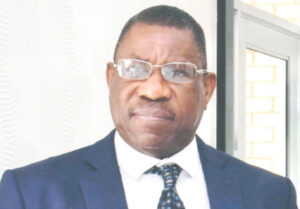
From chronic fuel shortage to an apparently collapsing fertiliser subsidy programme, crisis upon crisis, Malawians are sinking deeper into the quicksand of deprivation. So what does this all mean about governance? And what does the government say?
By Deogratias Mmana:
Malawi is reeling from multiple crises and government has at its hands the challenge to prove that it has not lost control of affairs, analysts say.
But the administration insists it is in charge and “not sleeping” on duty.
Instead, it is working round the clock to find solutions to what it indicates are decades-old problems.
For over a month now, the country has had no stable fuel supply, leading to people spending days and nights at filling stations for fuel that may never come.
Seen in some quarters as the worst fuel crisis in Malawi in recent memory, the challenge has wrecked a number of social and economic aspects – affecting the quality of lives of people.
In addition, while rains have started in other parts of country prompting farmers to start planting, government is failing to raise about K109 billion to implement this season’s Affordable Inputs Programme (AIP).
Last week, Smallholder Farmers Fertiliser Revolving Fund of Malawi Chief Executive Officer Richard Chikunkhuzeni told the Parliamentary Committee on Agriculture that only 16,261 metric tonnes of the expected 104,000 metric tons of the commodity had been delivered as of early this month.
As the challenges compound and breeding further negative effects, analysts say the current situation poses a significant question of governance competence on the part of the administration.
“It could suggest a lost grip of the vision and policy priorities. We have good policies but extremely bad politics,” governance analyst, George Chaima, told Malawi News.
He added:
“There is so much concentration on defending political powers [other] than the needs of the people which are continuously being neglected. If you can’t defend the needs of the citizenry with action, you end up betraying your own authority.
“If there is no price control, there is no authority. If there is no guarantee of fuel supply, there is no security. Fuel is the engine and the backbone of economic growth,” he said.
He said fuel crisis affects negatively the lives of ordinary citizens, as seen in the current increase of prices of commodities.
“In short l can say that economically, the local man is oppressed and punished without committing sin of his own,” he said.

Executive Director for Consumers Association of Malawi (Cama) John Kapito said the administration doesn’t seem it has learnt from the errors of the past regimes.
Neither has it shown willingness to take advice from those that know what to do.
According to Kapito, two months ago, Cama warned the government about an impending fuel emergency but the government dismissed the alarm.
“Only five weeks ago, we warned the government and the country of an impending fuel scarcity and how to avoid such a scenario.
“Unfortunately, every Malawian turned up on me personally including one Member of Parliament. Surprisingly the very same people are now experiencing the very same things we had warned about and for which we provided some solutions,” Kapito said.
The Cama boss said Malawi is in this crisis because of several reasons.
First, over the last three years, government has failed to control expenditure and borrowing from the domestic and foreign markets.
Secondly, government has also performed poorly in its negotiations with the International Monetary Fund on Extended Credit Facility (ECF). According to him, Malawi rushed to devalue the Kwacha as a condition for the ECF.
“This is an economy where the benefits for devaluation were misplaced where it was assumed that devaluation would help our exports. There was no understanding of where the exports would come from,” Kapito said.
He also said government’s failure to prioritise key development and productive sectors to spur growth is costing the country dearly.
“The government’s failure to control inflation through careless borrowing and poor expenditure has had a huge negative impact on poor consumers. It is necessary to spend only what we have,” he said.
Kapito further said there have been calls for the current Minister of Finance and Secretary to the Treasury to go as they are inexperienced in economic matters and have proven they are the “weakest links” to revive the flailing economy.
“Government was advised several times regarding the appointments of the Minister of Finance and Secretary to the Treasury and we ended up having one of the weakest links.
“These individuals are responsible for the current poor economic situation in the country. They lack experience and understanding of building back an economy that has collapsed,” he said.
But government insists it is up to the challenge, according to its spokesperson, Moses Kunkuyu.
“Government is there to provide solutions not to talk of challenges perpetually.
“We have been going through these challenges for decades and bringing permanent solutions was expected to be this hard but we are in control, almost out of the woods now with permanent solutions.
“We are not sleeping,” Kunkuyu said.
He said where you have a country that has these many challenges but still registering growth in other areas, that is a sign of a functional leadership.
“We have fuel and forex challenges but infrastructure development is still continuing. That is a sign of a leadership that is able to keep the ship afloat and stable in the midst of a storm,” he said.
Kunkuyu said a leadership that navigates a ship through a storm is the most proud and most celebrated.
“We are happy that others created the problems we are in and permanent solutions are coming with Dr Chakwera.
“Who messed up the railway lines and who is restoring them? Who subjected our police to torturous housing and who is restoring their dignity? Who deprived our teachers of promotions for 25 years and who is restoring that honour? Who was butchering people with albinism and who is protecting them?
“We are happy to be in the leadership and being entrusted with the responsibility to correct the wrongs that others sunk us into.”






0 Comments